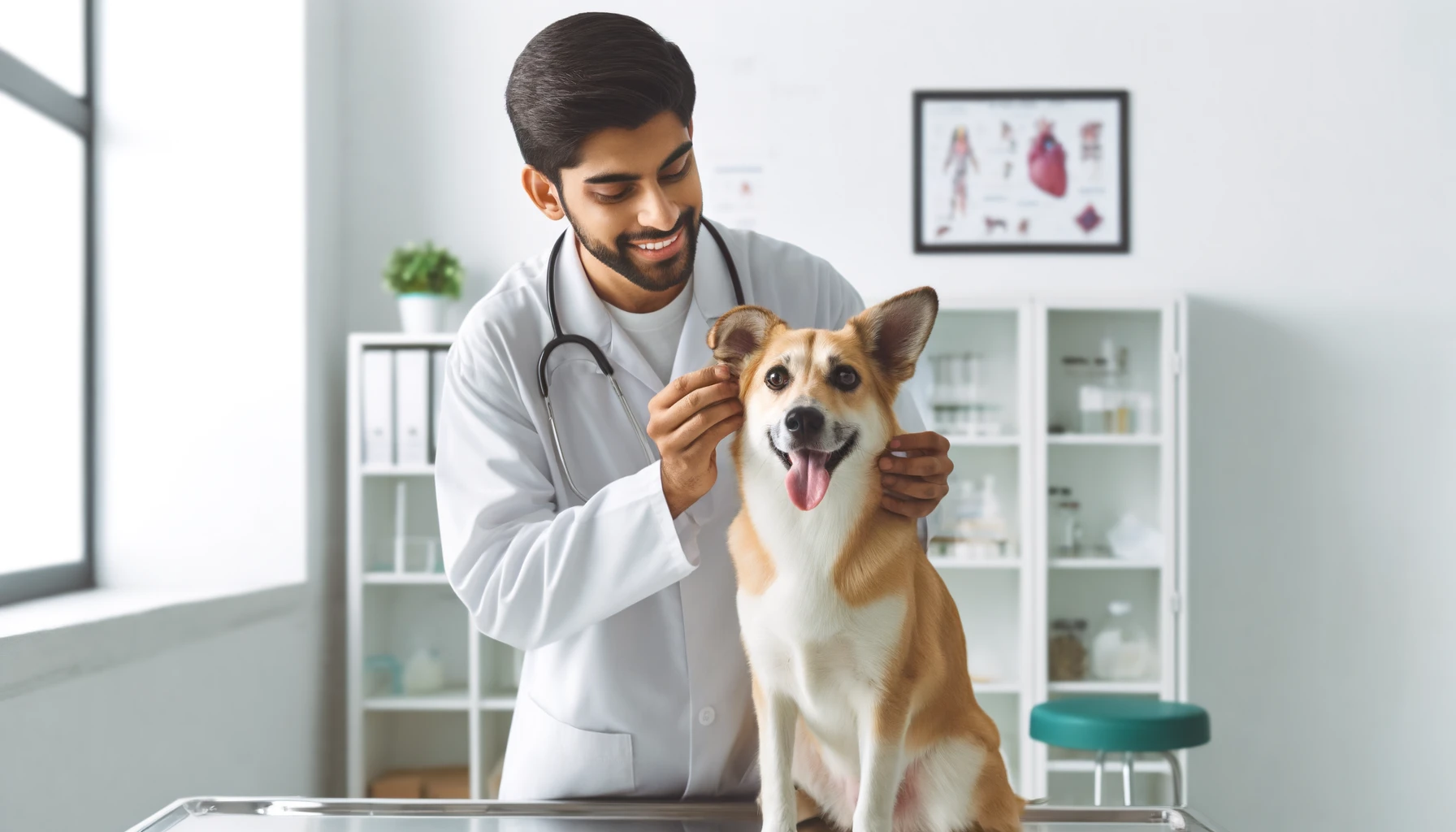- Empty cart.
- Continue Shopping
Regular Vet Visits

Essential for Your Dog’s Health and Happiness
When it comes to ensuring the health and well-being of your furry friend, regular vet visits are crucial. These visits are not just for emergencies or vaccinations; they form a critical part of preventive healthcare for your dog. In this article, we will explore the importance of routine veterinary check-ups, what to expect during these visits, and how they contribute to a long, healthy life for your pet.
The Importance of Regular Vet Visits
Regular vet visits are essential for several reasons:
- Early Detection of Health Issues: Many health problems in dogs can be asymptomatic in their early stages. Routine check-ups allow your vet to detect issues such as dental disease, arthritis, or even cancer before they become serious.
- Vaccinations and Parasite Control: Keeping up with vaccinations and parasite control is vital to prevent diseases like rabies, distemper, and heartworm. Your vet will develop a schedule tailored to your dog’s specific needs.
- Nutritional Advice and Weight Management: Obesity is a common issue in dogs that can lead to serious health problems. Regular visits allow your vet to monitor your dog’s weight and provide dietary advice to maintain optimal health.
- Behavioral Assessment: Changes in behavior can be indicators of underlying health issues. Regular vet visits provide an opportunity to discuss any behavioral changes and address potential problems early.
What to Expect During a Vet Visit
A routine vet visit typically includes the following:
- Physical Examination: The vet will perform a thorough physical exam, checking your dog’s eyes, ears, teeth, skin, and coat. They will listen to the heart and lungs and palpate the abdomen to detect any abnormalities.
- Vaccinations and Preventatives: Depending on your dog’s vaccination schedule, boosters or new vaccines may be administered. Your vet will also discuss and recommend parasite preventatives.
- Diagnostic Tests: Blood tests, urine analysis, and fecal exams may be conducted to screen for conditions such as diabetes, kidney disease, or intestinal parasites.
- Discussion and Advice: This is a good time to discuss any concerns you have about your dog’s health, behavior, or diet. Your vet can provide valuable insights and recommendations.
How Often Should You Visit the Vet?
The frequency of vet visits depends on your dog’s age, breed, and health status:
- Puppies: Puppies require frequent visits for vaccinations and to monitor their development. Typically, they need to see the vet every few weeks until they are about four months old.
- Adult Dogs: Healthy adult dogs should visit the vet at least once a year for a comprehensive check-up, vaccinations, and preventive care.
- Senior Dogs: Older dogs may require more frequent visits, at least twice a year, to manage age-related health issues and ensure they are comfortable in their golden years.
Tips for a Stress-Free Vet Visit
- Acclimate Your Dog: Get your dog used to being handled and examined by practicing at home. Touch their paws, ears, and mouth regularly.
- Positive Reinforcement: Use treats and praise to create positive associations with the vet’s office.
- Stay Calm: Dogs can pick up on your anxiety. Stay calm and reassuring to help your dog feel more at ease.
Conclusion
Regular vet visits are a cornerstone of responsible dog ownership. They ensure that any potential health issues are caught early, vaccinations are up to date, and your dog maintains a healthy weight and behavior. By prioritizing these visits, you can help your dog live a long, healthy, and happy life.
Printiaa Wooden Piggy Bank | Vertical Money Saving Box for Kids & Adults | ₹1,00,000 Savings Challenge Cash Box | Durable Wooden Coin Bank for Cash & Coins | Smart Money Save Box & Gift
₹298.00 (as of April 16, 2025 14:25 GMT +00:00 - More info)Nivasam Wooden Piggy Bank for Kids & Adults, Coin Box Carved Design, Savings Box, Mini Bank, Donation Box, Smart Money Box, Wooden Coin Box, Money Saver, Piggy Bank with Numbers (1)
₹199.00 (as of April 16, 2025 14:25 GMT +00:00 - More info)DOCTOR EXTRA SOFT Doctor Ortho Slippers for Women.
₹398.00 (as of April 16, 2025 08:53 GMT +00:00 - More info)DOCTOR EXTRA SOFT Flexible Memory Foam Women's Shoes for Walking Gym Training,Casual, Sports,Slip-On,Lightweight Lace up Jutis Bellies Classy Ballerina for Ladies and Girls New-D-1003
₹699.00 (as of April 16, 2025 14:25 GMT +00:00 - More info)JBL (Renewed) T205Bt Pure Bass Wireless Metal Earbud In Ear Headphones With Mic (Blue)
Now retrieving the price.



























